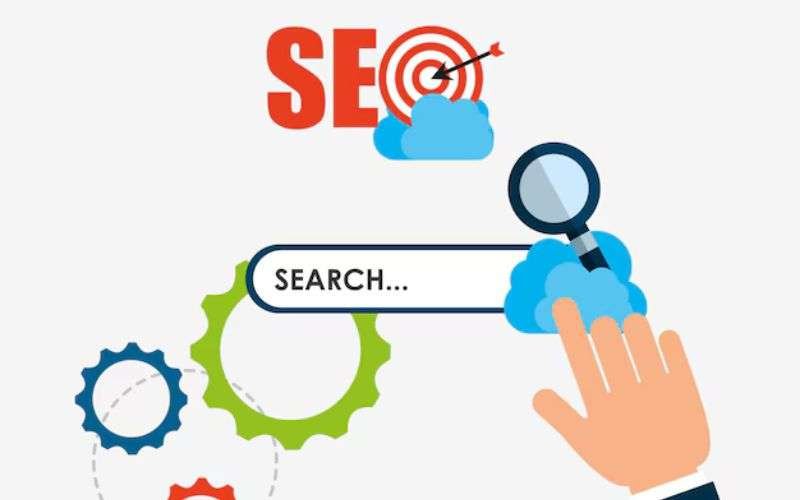Home » On-Page SEO vs. Off-Page SEO | Understanding the Differences and Benefits
On-Page SEO vs. Off-Page SEO | Understanding the Differences and Benefits

Introduction
In the world of digital marketing, SEO (Search Engine Optimization) is a key strategy for improving your website’s visibility, driving traffic, and boosting your rankings on search engines like Google. SEO is often divided into two primary categories: On-Page SEO and Off-Page SEO. Understanding the differences and benefits of each is essential for anyone looking to enhance their site’s performance.
Whether you’re just starting your journey with an SEO specialist course or aiming to earn SEO certifications, this blog post will break down these two aspects of SEO and explain how each contributes to your overall digital strategy.
What is SEO?
Before diving into the differences between on-page and off-page SEO, it’s crucial to understand SEO as a whole. SEO is the process of optimizing your website to rank higher in search engine results pages (SERPs) and to attract more organic (non-paid) traffic.
SEO involves many factors, but they can broadly be categorized into two main types:
On-Page SEO: Actions taken directly on your website to improve its rankings.
Off-Page SEO: Efforts taken outside your website that contribute to its ranking potential.
Understanding both of these categories is critical for anyone interested in pursuing an SEO specialist course or earning SEO certifications.
What is On-Page SEO?
On-Page SEO refers to the techniques used to optimize individual pages on your website in order to rank higher and earn more relevant traffic. This involves ensuring that both the content and HTML source code of a page are optimized.
Key Elements of On-Page SEO:
Title Tags: The title tag is an HTML element that specifies the title of a web page. Title tags should be concise, include relevant keywords, and accurately describe the content of the page.
Meta Descriptions: Meta descriptions provide a brief summary of a webpage. They help search engines understand the content and can influence click-through rates.
Header Tags (H1, H2, H3): These tags structure your content and improve readability. Search engines use these headers to understand the hierarchy of content on your page.
Keyword Optimization: Integrating the right keywords into your content helps search engines understand the relevance of your page for specific search queries. Maintaining a keyword density of 2-3% is optimal for ranking well without overstuffing.
Internal Linking: Linking to other pages within your website helps search engines crawl your site more effectively and improves user experience by guiding visitors to additional relevant content.
Content Quality: High-quality, informative content is crucial. Google’s algorithms favor content that is useful, accurate, and trustworthy (following EAT standards). This aligns well with BERT and RankBrain, which prioritize content that answers user queries in a natural, understandable way.
Image Optimization: Including relevant images with optimized file names and alt text can improve user experience and accessibility, which can indirectly impact your rankings.
Mobile Optimization: With the majority of searches happening on mobile devices, having a mobile-friendly website is essential for on-page SEO. Google uses mobile-first indexing, meaning the mobile version of your site is often prioritized in search results.
What is Off-Page SEO?
Off-Page SEO refers to the actions taken outside of your website that impact your rankings on search engines. While on-page SEO focuses on optimizing content within your site, off-page SEO is about building authority, trust, and relevance through external factors.
Key Elements of Off-Page SEO:
Backlinks: Backlinks are one of the most important off-page SEO factors. They are links from other websites to your site, and they serve as a vote of confidence in your content. The more high-quality backlinks you have, the more likely search engines are to trust your site and rank it higher.
Social Signals: While social media activity doesn’t directly affect rankings, it can contribute to your overall online presence and increase your visibility. Shares, likes, and comments can indirectly drive traffic and build authority.
Brand Mentions: If your brand is mentioned on other websites or in the news, it can signal to search engines that your site is credible and authoritative.
Guest Blogging: Writing high-quality content for other websites can help you earn backlinks and reach new audiences. This is a popular strategy for building authority in your niche.
Influencer Outreach: Collaborating with influencers in your industry can lead to mentions, backlinks, and increased visibility for your website.
The Key Differences Between On-Page and Off-Page SEO
1. Control Over the Process
On-Page SEO: You have complete control over on-page SEO elements. From content creation to optimizing HTML tags, everything is done directly on your website.
Off-Page SEO: You have limited control over off-page SEO since it involves actions taken outside of your website. Securing backlinks, for example, requires outreach and collaboration with other sites

2. Focus
On-Page SEO: The focus is on optimizing individual web pages and content to rank well.
Off-Page SEO: The focus is on building your site’s authority and trustworthiness by acquiring backlinks and engaging in activities outside of your own site.
3. Time to See Results
On-Page SEO: You can often see improvements relatively quickly after optimizing your content, meta tags, and site structure.
Off-Page SEO: Off-page SEO strategies, such as link building, can take longer to show results. The process of earning high-quality backlinks is often slow but yields long-term benefits.
4. Impact on Search Rankings
On-Page SEO: This directly impacts how search engines understand your site and rank it for relevant keywords. Effective on-page SEO can result in immediate improvements in search rankings.
Off-Page SEO: Off-page SEO, particularly through backlinks, plays a critical role in establishing domain authority. Sites with a strong backlink profile are more likely to rank higher in competitive search queries.
Can You Learn SEO in 3 Months?
Yes, you can learn the basics of SEO in 3 months, but mastering SEO requires continuous learning and practice. In 4 months, you can gain a solid understanding of core SEO concepts such as:
Keyword Research: How to find relevant keywords for your niche and integrate them into your content.
On-Page SEO: Learning to optimize content, title tags, meta descriptions, and internal links.
Off-Page SEO: Understanding the importance of backlinks and building strategies for link acquisition.
Technical SEO: Basic aspects like improving site speed, mobile-friendliness, and site architecture.
You can achieve this by enrolling in an SEO specialist course or earning SEO certifications. However, SEO is a dynamic field with frequent algorithm updates and new strategies, so after the first 3 months, ongoing education and experimentation will be essential.
Is SEO a High-Paying Job?
Yes, SEO can be a high-paying job, especially as you gain experience and expertise in the field. The salary of an SEO professional depends on factors such as location, level of expertise, and the type of organization you work for. Here’s a breakdown of common roles and their typical salary ranges:
Entry-Level SEO Specialist: With basic SEO certifications or an SEO specialist course, entry-level positions can offer salaries ranging from 20000 to 25000 per month.
Mid-Level SEO Analyst/Manager: With 3-5 years of experience, professionals can earn between 30000 to 35000 per month.
SEO Consultant or Strategist: Those with deep expertise or niche knowledge can command salaries or consultancy fees exceeding 60000 to 80000 per month.
Freelancers and independent consultants in SEO can also earn substantial incomes by managing multiple clients, depending on their level of expertise and the scope of the projects.
How to Get 100% SEO?
Achieving 100% SEO is more about maximizing your site’s optimization potential than an absolute result. While SEO is a continuous process with no true finish line, here are steps to ensure your site is fully optimized:
Perform a Comprehensive SEO Audit: Use tools like Google Search Console, Ahrefs, or SEMrush to identify weaknesses in your site’s technical, on-page, and off-page SEO.
Optimize On-Page SEO:
Ensure content is keyword-optimized without keyword stuffing.
Create high-quality, relevant, and authoritative content.
Improve title tags, meta descriptions, headers, and internal linking structures.
Improve Technical SEO:
Ensure your site is mobile-friendly and loads quickly.
Optimize your site’s architecture for easy crawling and indexing.
Use schema markup to help search engines understand your content better.
Build a Strong Backlink Profile:
Focus on earning backlinks from high-authority, relevant websites.
Engage in guest blogging, influencer outreach, and PR campaigns to improve off-page SEO.
Keep Up with Algorithm Updates:
SEO is constantly evolving, so staying current with Google algorithm changes is critical to maintaining strong rankings.
While no site can be 100% perfect due to the dynamic nature of SEO, following these steps ensures you have a well-rounded and highly optimized SEO strategy that maximizes your potential for ranking well and attracting organic traffic.
The Benefits of On-Page SEO
Improved User Experience: By optimizing your site’s content and structure, you can create a seamless user experience, which not only keeps visitors engaged but also signals to search engines that your site is of high quality.
Higher Rankings for Targeted Keywords: By focusing on keyword optimization and relevance, on-page SEO helps your site rank for the terms that are most important to your business.
Quick Results: On-page SEO changes can often result in quicker rankings improvements compared to off-page efforts.

The Benefits of Off-Page SEO
Authority Building: One of the main goals of off-page SEO is to build your website’s authority. Sites with higher authority are more likely to rank higher in search engine results.
Long-Term Success: Off-page SEO strategies, such as earning high-quality backlinks, contribute to long-term rankings success. Once your site has established a solid backlink profile, it will continue to benefit from increased visibility over time.
Increased Website Traffic: As your off-page efforts improve your authority and rankings, more people will find your site organically, leading to an increase in traffic and potential conversions.
How On-Page and Off-Page SEO Work Together
Both on-page and off-page SEO are critical to a successful SEO strategy. Here’s how they complement each other:
On-page SEO builds a solid foundation for your website. Without it, off-page SEO efforts might be wasted because search engines need to understand the content and context of your website in order to rank it.
Off-page SEO builds the authority and trustworthiness of your site. Even if your on-page SEO is perfect, if your site lacks backlinks and mentions from other reputable sites, it may struggle to compete for top rankings.
How to Master Both On-Page and Off-Page SEO
For those interested in becoming SEO experts, enrolling in an SEO specialist course or obtaining SEO certifications is highly recommended. These courses can provide valuable insights and hands-on experience with both on-page and off-page SEO techniques, helping you develop a comprehensive understanding of how to optimize websites for search engines.
Actionable Tips for SEO Success
Perform Regular SEO Audits: Regularly assess your website’s performance using tools like Google Search Console and SEO audit tools.
Focus on High-Quality Content: Always prioritize high-quality, user-focused content that adheres to EAT standards.
Build Strong Backlinks: Focus on earning high-quality backlinks from authoritative sites through guest blogging, outreach, and relationship building.
Stay Updated on SEO Trends: SEO is constantly evolving. Keep up with the latest trends and algorithm updates to ensure your strategies remain effective.
Conclusion
Understanding the differences between on-page SEO and off-page SEO is critical for building a well-rounded SEO strategy. Both aspects work hand-in-hand to improve your site’s performance, authority, and visibility in search engine results. Whether you’re looking to pursue an SEO specialist course or earn SEO certifications, mastering both is essential to achieving long-term success in digital marketing.
By leveraging the power of both on-page and off-page SEO, you can create a comprehensive strategy that drives traffic, improves rankings, and enhances your online presence.
If you’re looking to enhance your digital marketing skills, including mastering the art of CTAs, consider enrolling in a digital marketing course online with the 7 Star Institute of Digital Marketing. Know more in about us section of on website. Our courses are designed to provide you with practical, hands-on experience, ensuring you’re ready to implement the strategies that will lead to success.







